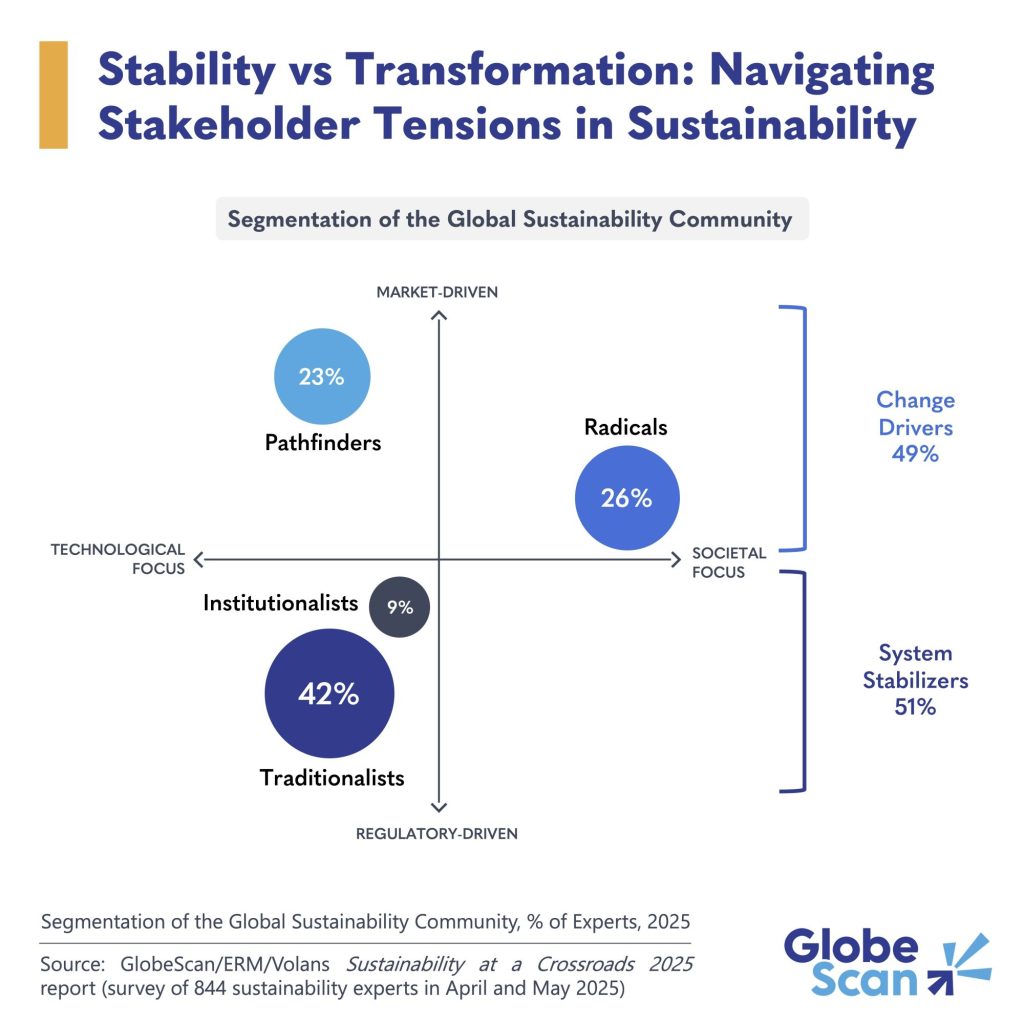4 types of stakeholder mindsets on sustainability
Business actions that appeal to one group of stakeholders may alienate another. Read More

- Sustainability stakeholders are split between system-preserving and transformation-driven mindsets.
- Business actions that appeal to one group of stakeholders may alienate another.
- A “yes, and” strategy is essential: balancing compliance with innovation, equity with efficiency and system stability with transformation.
As with many issues, there’s a variety of perspectives on what works best to advance sustainability. In a segmentation analysis, Trellis data partner GlobeScan, in collaboration with ERM and Volans, identifies four distinct mindsets that shape how stakeholders engage with the sustainability agenda.
Based on expert ratings of different actions to drive positive impact, the analysis identifies groups with shared perspectives on what works best to keep sustainability moving forward:
- Traditionalists (42 percent) favor incremental progress through regulatory and compliance-focused approaches
- Radicals (26 percent) advocate for deep, justice-driven change led by activism and social mobilization
- Pathfinders (23 percent) support ambitious sustainability progress grounded in innovation, technology and market-based solutions
- Institutionalists (9 percent) prefer technocratic solutions and maintaining the existing system.

What this means
The coexistence of these divergent perspectives — split between system-preserving and transformation-driven mindsets — presents a complex challenge for business leaders. While traditionalists value continuity and compliance, radicals push for bold, justice-centered transformation. Pathfinders and institutionalists occupy the middle ground, balancing ambition with pragmatism.
To succeed in this fragmented landscape, companies must embrace a “yes, and” mindset — one that reconciles system stability with transformation, compliance with innovation and equity with efficiency. As stakeholder expectations rise and scrutiny intensifies, integrated strategies that bridge these divides are essential to maintaining legitimacy, managing reputational risk and demonstrating credible leadership.
Based on a survey of 844 sustainability practitioners across 72 countries who were asked to use a 5-point scale to rate how likely certain actions would lead to positive sustainability outcomes over the next five years. Conducted April-May 2025.

Subscribe to Trellis Briefing
Featured Reports

The Premier Event for Sustainable Business Leaders
















